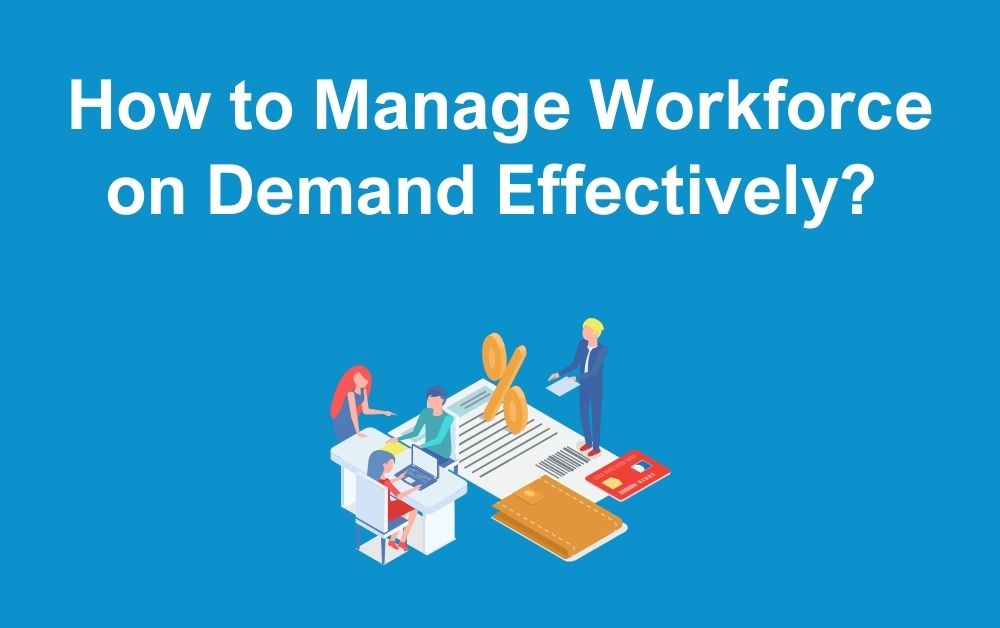With more and more businesses requiring specialised expertise and the need for greater flexibility, there has been a sharp rise in the use of on-demand workforce planning. This approach is cost effective, flexible and allows companies to carefully acquire talent to meet their business needs.
Workforce on demand requires careful planning to ensure your team and independent consultants can work together harmoniously.
However, managing an on-demand workforce can be tricky. Challenges you will face include:
- Integrating consultants into your company culture quickly (without traditional onboarding)
- Creating effective working relationships with speed
- Ensuring consultants / freelancers are immediately engaged with the work you require them for
Overcoming these challenges is essential to the success of your business operations. Here we’ve shared some of our top tips on how to manage workforce on demand effectively.
Determine your talent requirements
In order for workforce on demand to work, you need to make sure you are acquiring the right people. Evaluating your talent requirements is, therefore, a crucial first step.
Think about what type of consultants or freelancers you are looking for and the skillset they need. Do you require them to have any certifications or insurance? Experience is likely to be high on your list of essentials, so you will need to make sure you have a solid vetting process for checking references.
It’s also important not to overlook soft skills, as these will ultimately help the consultants or freelancers you hire temporarily to integrate with your existing team and provide a great customer service.
Once you have established your talent requirements, make sure you research the cost of hiring consultants and other freelance workers, so you can budget accordingly.
Establish a process for onboarding consultants
You will need to identify metrics to measure so you can evaluate the success of your workforce on demand.
Managing workforce on demand effectively will require you to have strict processes in place. It’s important that you map out your process from start to finish and have a clear idea of who will be in charge of each aspect of your workflow.
You will need to carefully consider each part of the management process from hiring and onboarding consultants to monitoring their work and paying their invoices. Careful management will allow you to continue running your business smoothly.
Monitoring workforce on demand
Before implementing your workforce on demand strategy, you need a clear idea of how you will measure success. Think about the costs and value metrics you need to evaluate and how you will report on them.
Data reports are all very well and good but they won’t give you all of the information you need. Regular meetings with the consultants or freelancers you hire will give you a better idea of their progress and how they’re slotting into your organisation. Getting feedback from other members of your team will also help you gauge how well the consultant is fitting in and whether they’re benefiting your organisation.
Contingency planning
The final part of managing workforce on demand effectively requires you to plan for contingencies. Remember, projects don’t always go the way you planned them to, so you need to make sure you have established what will happen in the case of an unexpected event.
For example, if your project takes longer than expected, will you be able to extend your consultant’s contract? If the scope of the project changes, will you still be able to use their skills in a way that is valuable for your business?
Before signing a contract, it’s important to establish these things so you don’t get caught out if something doesn’t quite go to plan.
Conclusion
Using a workforce on demand approach to running your business can be very beneficial in terms of improving efficiency, lowering costs and adding expertise to your team at a time when you need it most. However, even the most experienced contractors need guidance and processes to follow in order to deliver their services effectively. By planning ahead and establishing clear channels of communication, you will be able to manage talent on demand effectively and achieve the best results for your business.
For more information contact us at The HR Booth on 01383 668178 or email us at info@thehrbooth.co.uk







